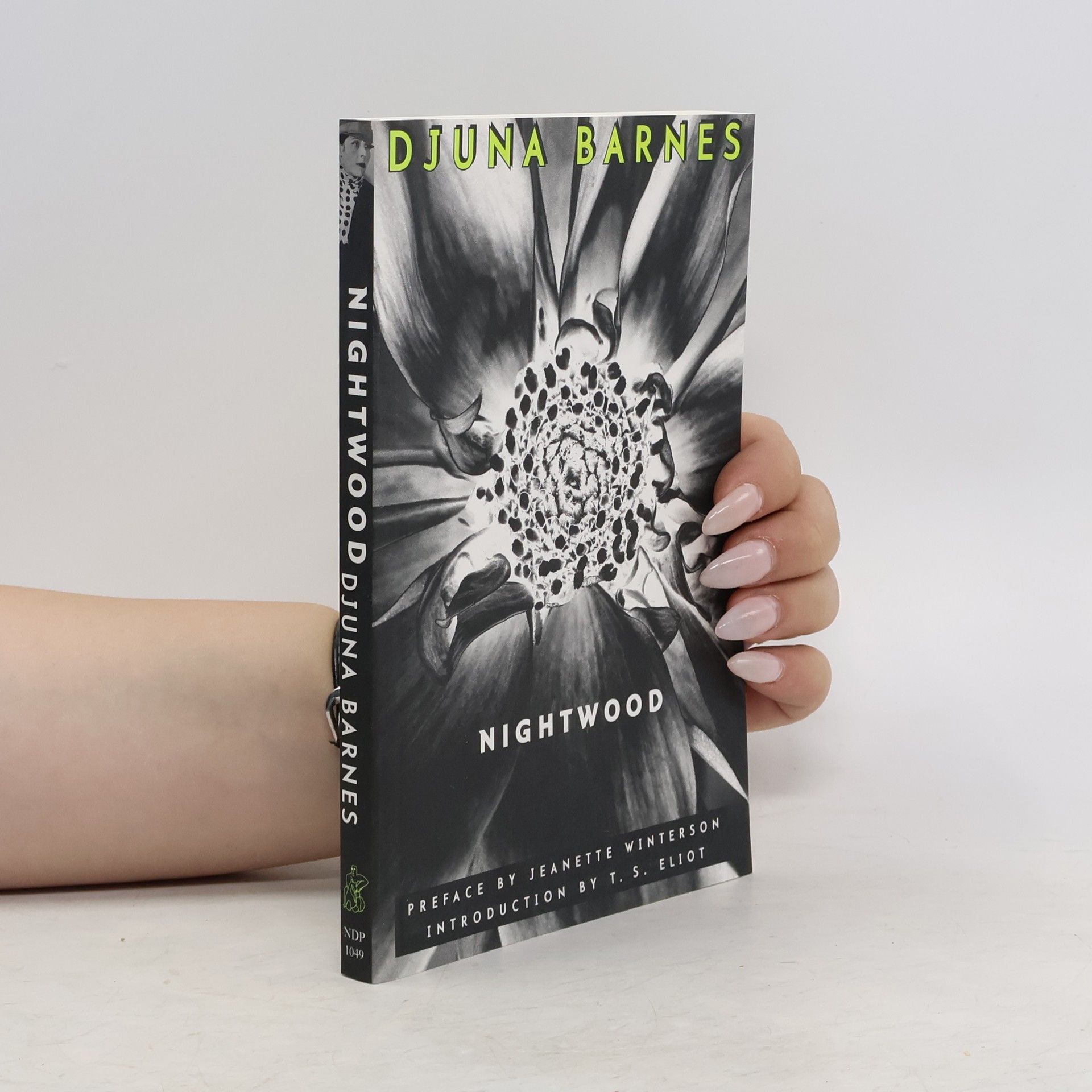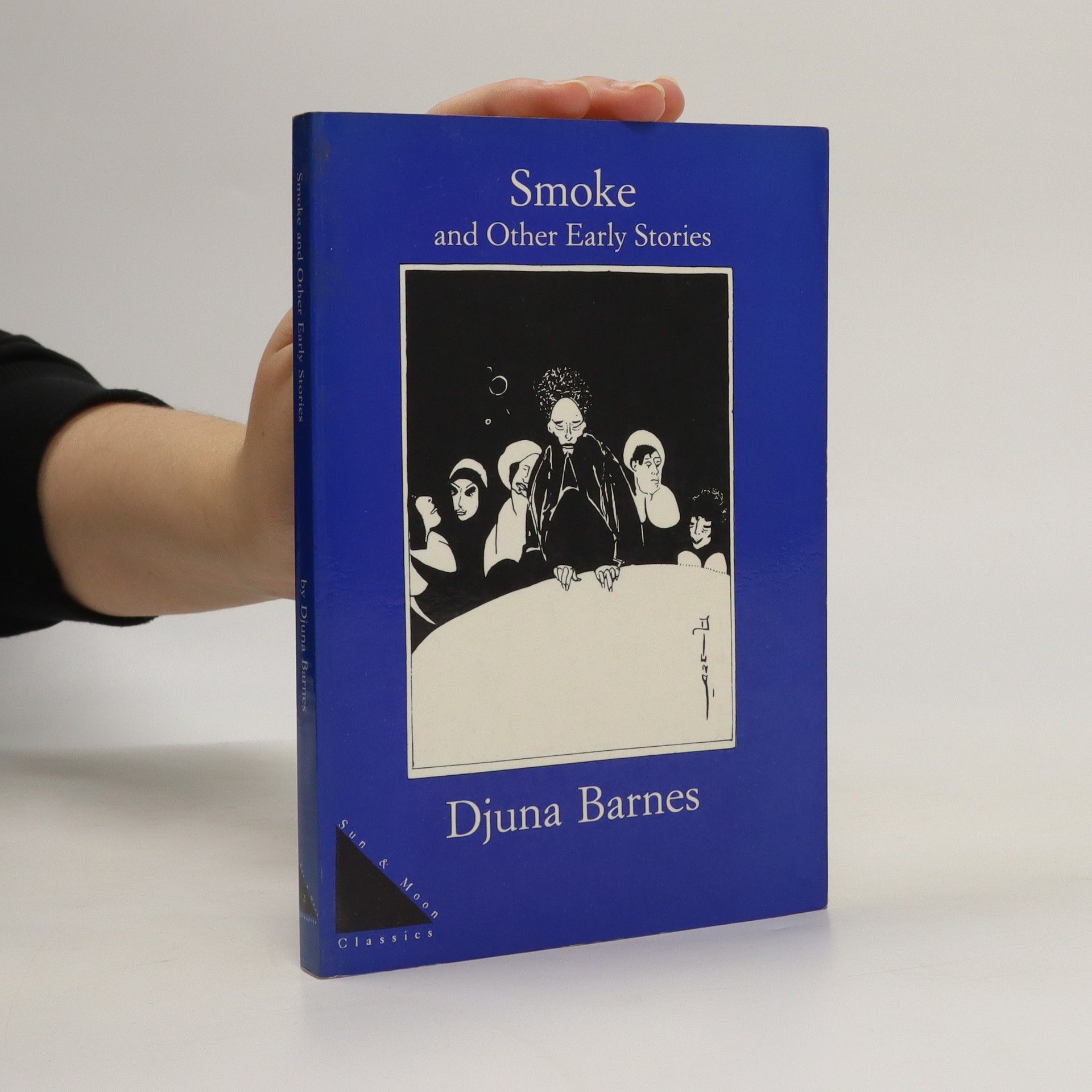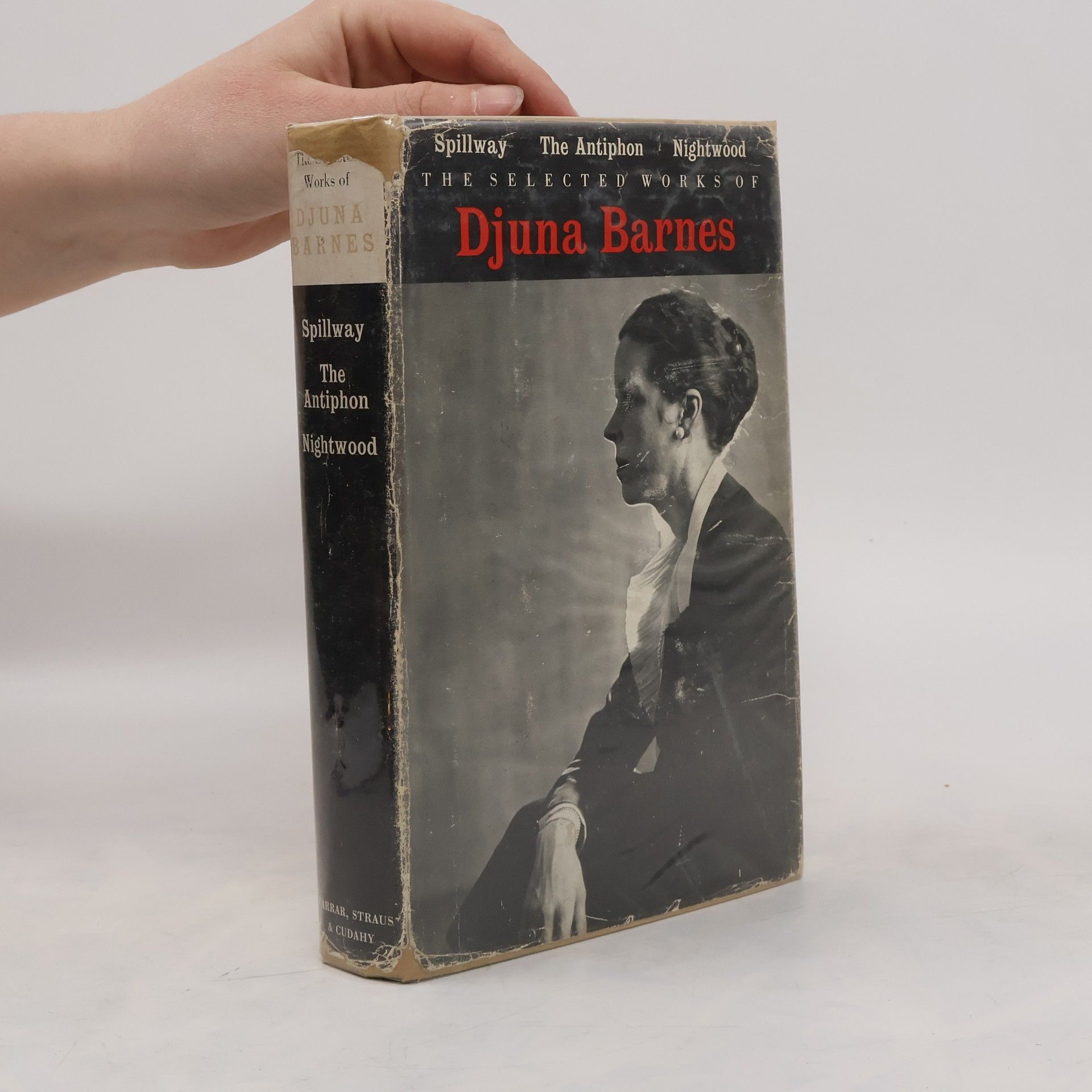Djuna Barnes Libros
Djalo fue una figura influyente en la escritura modernista en inglés del siglo XX, desempeñando un papel clave en círculos bohemios. Sus obras son celebradas por su estilo único y su exploración de temas lésbicos, y una novela se convirtió en un clásico de culto. Desde su fallecimiento, su escritura ha experimentado un resurgimiento de interés, y muchos de sus libros han sido reeditados.






From the author of Nightwood Djuna Barnes has written a book that is all that she was, and must still be vulgar, beautiful, defiant, witty, poetic, and a little mad. Argonaut
Smoke and Other Early Stories
- 182 páginas
- 7 horas de lectura
fiction, ed w/intro by Douglas Messerli As a collection, these stories were published in 1982, but the stories within the volume were originally published 1914-1917.
Book of Repulsive Women
- 84 páginas
- 3 horas de lectura
Djuna Barnes (1892-1982) once described herself as the most famous unknown writer, and although her novel Nightwood is celebrated, her poetry has been a well-kept secret. This selection contains work written between 1914 and the 1970s. schovat popis
Ladies Almanack
- 76 páginas
- 3 horas de lectura
An experimental roman à clef, this work explores the lives of a community of Parisian lesbians, showcasing Djuna Barnes' innovative approach to literary form. Celebrated for its unapologetic embrace of queerness, the novel challenges traditional narrative structures and stands out as a groundbreaking piece of lesbian literature. Its puzzling style invites readers to engage deeply with the themes of identity and community, making it a significant contribution to both feminist and queer literary discourse.
Nightwood
- 208 páginas
- 8 horas de lectura
"Nightwood" by Djuna Barnes is a groundbreaking novel set between the World Wars, exploring themes of class, religion, and sexuality in cities like Paris and Berlin. Its unforgettable characters, including Robin Vote and Dr. Dante-O'Connor, navigate complex relationships, making it a landmark in feminist and lesbian literature. T.S. Eliot praised its poetic style, and a new preface by Jeanette Winterson highlights its enduring impact.
The Lydia Steptoe Stories
- 48 páginas
- 2 horas de lectura
In these three stories, written by Djuna Barnes under the pseudonym Lydia Steptoe, three characters find themselves on the brink of a sexual awakening - accompanied by guns, whips, and worldly innuendo
Nightwood. Nachtgewächs, englische Titel
- 192 páginas
- 7 horas de lectura
Nightwood is not only a classic of modernist literature, but was also acknowledged by T. S. Eliot as one of the great novels of the 20th century. Eliot admired Djuna Barnes' rich, evocative language. Barnes told a friend that Nightwood was written with her own blood 'while it was still running.' That flowing wound was the breakup of an eight-year relationship with the love of her life.Now recognised as a twentieth-century classic, the influence of Djuna Barnes's novel has been, and continues to be, exceptional.
A Book
- 200 páginas
- 7 horas de lectura
This collection features early short stories by Djuna Barnes, a prominent Modernist writer known for her influential work, Nightwood. The reprint showcases her unique narrative style and innovative approach to themes of identity, gender, and society. Readers can expect a blend of poetic language and experimental storytelling that reflects the complexities of early 20th-century life. Barnes' distinctive voice and perspective make this collection a significant addition to the canon of Modernist literature.
